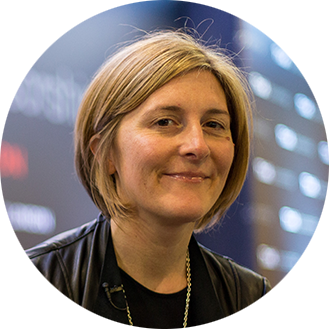Catherine Hawkins was named on 9 March 2023 as one of the four inaugural recipients of the ESA Fellowship. In this Q&A, Catherine reflects both on the individual honour and the changing nature of the sponsorship industry during her years of service.

How do you feel to be selected as one of the inaugural ESA Fellows?
I feel really humbled to receive this award. It’s a very proud moment to be recognised by my peers and by the governing body to have meaningfully contributed to the sector. It’s unexpected but really thrilling – I’m delighted.
What have been the most profound changes in sponsorship during your career?
I first started working in sponsorship 20 years ago, if I could have encapsulated sponsorship in one question, it would have been: ‘How big is the logo?’
Everything was around visibility and purchasing sponsorship was all about reach. Obviously there was an element of trying to appeal to customers’ passion points, but so much of the conversation was around exposure, and now I feel it’s such a different conversation whether you are buying or selling. Now sponsorship is better integrated into wider marketing CSR or impact campaigns.
More recently the use of more purpose-led partnerships and the appetite and acknowledgment of the role of content and digital and IP, opening our sector up to new and interesting areas of opportunity for specialisms.
There are a lot more bespoke and impactful solutions, and it’s such an exciting point for us to be at. That diversification enables us to look at everything more widely. From a properties point of view, we still have market leaders in big-scale sport and entertainment, but so many other platforms are emerging that present fabulous opportunities across culture, media, charity and environment.
On the flipside what are the constants that make the industry remain strong across Europe?
The essential concept of sponsorship has stayed very stable – it’s an opportunity to connect with communities in their engaged space. In an increasingly competitive marketplace, getting attention and airtime and being able to talk to potential customers… we are uniquely well placed to do that and create memorable long-term connections.
That feels like the enduring piece of sponsorship to me. All platforms are different but whether browsing an exhibition at the V&A or sitting at a match, or attending a gig, those well-strategised and well-integrated brand moments can be so deeply impactful, and that is the sweet spot where sponsorship works best.
While we are in a good place, one of the constants that remains a challenge for our industry is talent retention. Sometimes we have lost great people to mainstream marketing, where they see more readily what the routes will be. It’s certainly one of the things that has motivated me in the delivery of the ESA Sponsorship Sales Certificate. Where do you go next as a brand manager? It would be great if we can get better at demonstrating that, and perhaps the ESA Fellowship can help in demonstrating the value and the rewards of staying in sponsorship.
Also I think we need to increase diversity within the industry. A lot of talent has gone untapped because we haven’t been historically diverse. We need to attract people from different backgrounds to keep our talent pool healthy.
Who have been your role models / sources of inspiration in the industry and why?
In my early career I was fortunate to be able to access great counsel from Nigel Geach, one of my first clients and best industry friends, who has been a constant source of advice and insight and support when I’ve needed it.
Karen Earl and Nigel Currie respectively, during their tenures as Chair of ESA, were incredibly supportive in early times, and in different ways they have been impactful on my appetite not only to stay in the industry but to define a role within it.
Wendy Stephenson (MD of WSB Consulting, which then turned into Sponsorship Consulting) was one of the early pioneering voices of sponsorship in the culture sector, back in 2005, which really made me realise there was life beyond sport, and this helped me to push the Think!Sponsorship Conference forward and integrate non-sporting elements into it. Wendy was a pioneer who got culture sponsorship on the map.
Along the way I’ve met such wonderful people right across the sector, made great friendships and met people who have added so much value to my life.

